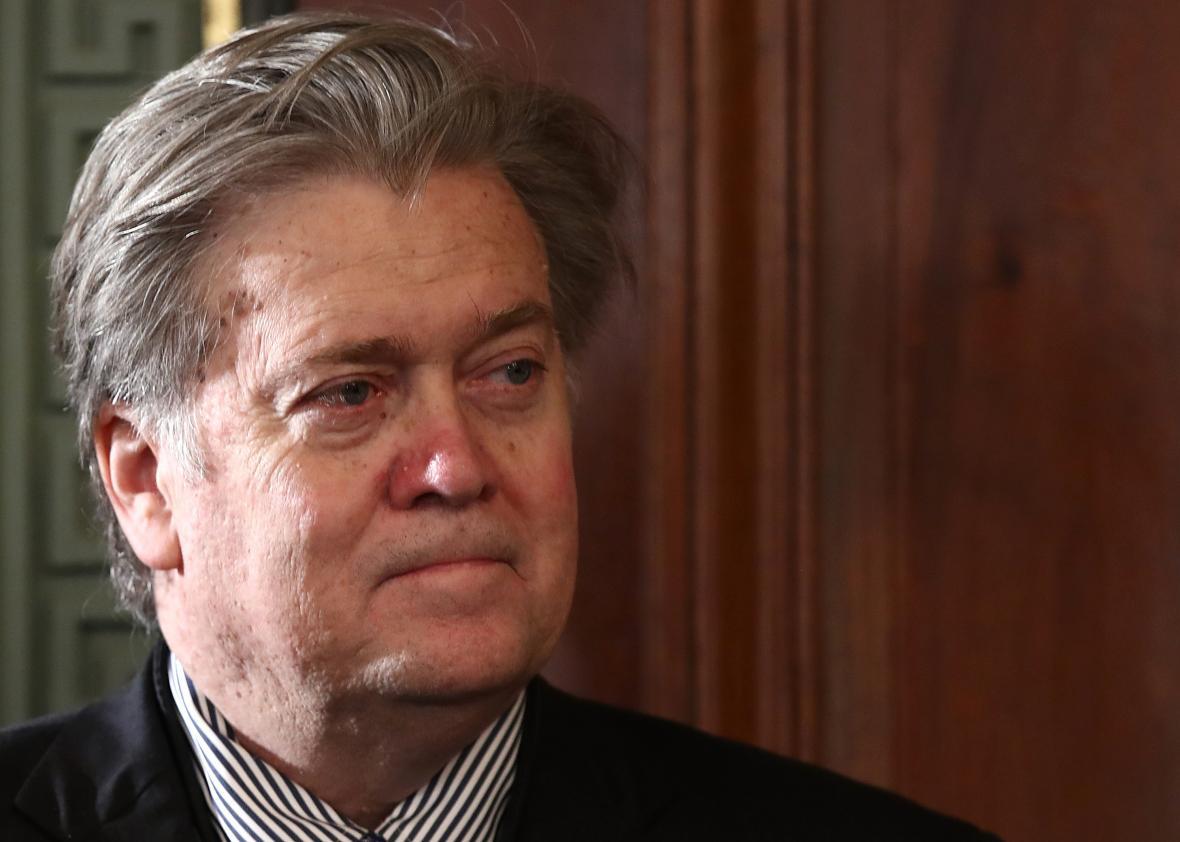The former head of far-right website Breitbart News is getting a key seat to help decide the country’s national security priorities in a move that many have been quick to describe as unprecedented. President Donald Trump reorganized the National Security Council’s Principals Committee and handed one of his key advisers, Steve Bannon, a regular seat at the table. At the same time, he removed the chairman of the Joint Chiefs of Staff and the director of national intelligence from regular attendance at the meetings. The two officials will now only participate in meetings “where issues pertaining to their responsibilities and expertise are to be discussed.”
Although it isn’t exactly strange for new presidents to reorganize the National Security Council, many were quick to raise concern about the inclusion of Bannon, suggesting it could be a sign of increased politicization of the key committee that amounts to the main group advising the president on national security and foreign affairs. “The appointment of Mr. Bannon is something which is a radical departure from any National Security Council in history,” Sen. John McCain said on CBS’s Face the Nation. Some were quick to point to comments by George W. Bush’s former chief of staff, who said the former president didn’t want Karl Rove attending meetings where national security issues were on the table in order to avoid any suggestion that he was letting political considerations cloud his decisions.
The move also confirms how Bannon’s star is continuing to rise in Trump’s White House. He had already been playing an important role in directing the president’s foreign policy and was in the Oval Office on Saturday when Trump talked to Russian President Vladimir Putin and other world leaders.
Former Defense Secretary Robert Gates said it was a “big mistake” to limit the role of the director of national intelligence and the chairman of the Joint Chiefs of Staff. “They both bring a perspective and judgment and experience … that every president—whether they like it or not—finds useful,” he said on ABC News.
Obama’s National Security Advisor Susan Rice was a bit more blunt, calling the moves “stone cold crazy” on Twitter.
The White House, meanwhile, defended the moves. “We are instilling reforms to make sure that we streamline the process for the president to make decisions on key, important intelligence matters,” White House Press Secretary Sean Spicer said on ABC’s This Week. He also defended the inclusion of Bannon, saying he was a “former naval officer” who has a “tremendous understanding of the world and the geopolitical landscape that we have now.”
Although this all seems like a bit of inside baseball, the consequences could be huge. But NPR’s national security editor, Philip Ewing, explains it’s still too soon to know how much it will matter in the long run:
On paper, these are big changes: Past administrations ran their National Security Councils with a Great Wall of China-separation between the political team at the White House and the nonpartisan specialists who help with decision-making. The explicit inclusion of Bannon means that Trump’s top adviser on messaging, strategy and other partisan issues means he could also be part of decisions about policy toward adversaries, military actions and other such decisions.
What does it all mean, in practical terms? It’s too soon to say. Former national security council staffers say their day-to-day meetings and process were not governed by whatever formal instruction issued by their respective presidents. Political staffers from the White House have attended meetings in the past. The committees invite who they think they need to invite given the topics under discussion—something that will likely continue under [National Security Advisor Michael] Flynn.
